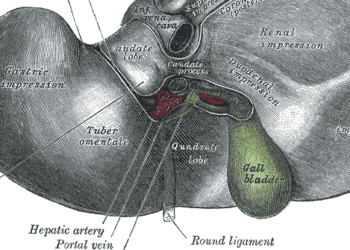Key mutations may protect against coronary artery disease
1. Genetic mutations that led to the inactivation NPC1L1, a lipid transporter protein, were linked to lower low-density lipoprotein (LDL) and total cholesterol levels.
Evidence Rating Level: 2 (Good)
Study Rundown: Ezetimibe is a lipid-lowering agent thought to block lipid absorption by inhibiting the Niemann-Pick C1-like 1 gene (NPC1L1), which codes for a protein that transports cholesterol from the gut lumen into enterocytes. Previous genome-wide studies have demonstrated an association between low-density lipoprotein (LDL) levels and genetic sequence variation in NPC1L1. Elevated LDL is a well-known risk factor for coronary artery disease.
This genetic study combined data collected internationally from prior case-control and cohort studies. Initially, a total of 15 common “inactivating mutations” were identified in the exon (protein-coding) regions of NPC1L1. Patients who were carriers of one of the 15 inactivating mutations were noted to have statistically significant reductions in both LDL and total cholesterol (as compared to non-carriers). Among patients with established coronary heart disease, carrier frequency for one of the 15 inactivating mutations was 0.04% versus 0.09% in those without coronary heart disease.
As only inactivating mutations were examined, the lipid-lowering effect of NPC1L1 mutations may have been understated as other types of mutations were not included in this study (e.g., frame-shift, splice-site). Furthermore, other phenotypic consequences of NPC1L1 mutations were not studied therefore the lipid lowering benefits may be offset by other uncharacterized changes. This study once again emphasizes the importance of genetic predisposition when considering a patient’s risk of coronary heart disease. Future studies are likely to focus on the clinical impact of earlier NPC1L1 blockade as a form of primary prophylaxis against coronary heart disease.
Click to read the study, published today in NEJM
Relevant Reading: Niemann-Pick C1-Like 1 (NPC1L1) Protein in Intestinal and Hepatic Cholesterol Transport
In-Depth [genetic analysis study]: This study included data from 16 prior case-control and cohort studies. After sequencing NPC1L1 from approximately 21,000 patients, a total of 15 inactivating mutations were identified in 34 patients (“carriers”). When compared to non-carriers, carriers had lower levels of total cholesterol (0.34 mmol/L, p=0.03) and LDL (0.31 mmol/L, p=0.04). No statistical difference was noted in triglyceride levels or high-density lipoprotein (non-carriers vs. carriers). Carrier frequency was lower (0.04%) in the group with coronary heart disease versus the group without coronary heart disease (0.09%), leading to a risk reduction of 53% among carriers (p=0.008).
More from this author: Rituximab superior to azathioprine in autoimmune vasculitis, Ultrasound as effective as CT at identifying high-risk kidney stones, reduces radiation exposure, Lower blood transfusion threshold in septic shock safe at 90-days, Influenza vaccination in pregnancy protects both mother and infant, Sirolimus may prevent graft failure in patients with renal transplantation for antiphospholipid syndrome
Image: PD
©2014 2 Minute Medicine, Inc. All rights reserved. No works may be reproduced without expressed written consent from 2 Minute Medicine, Inc. No article should be construed as medical advice and is not intended as such by the authors, editors, staff or by 2 Minute Medicine, Inc.







